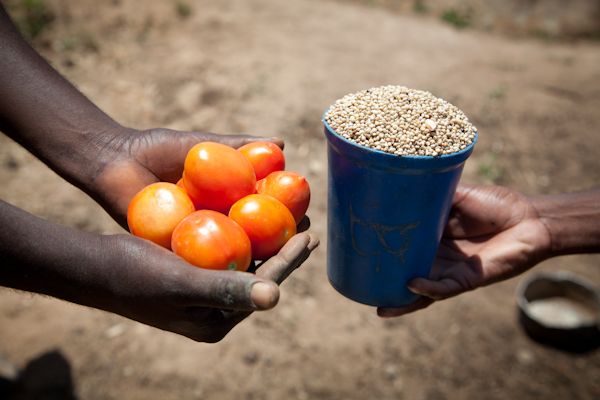
Before money existed, barter was the way people secured and sold goods and services. I gave you five chickens and you gave me a bushel of potatoes in return. Successful “deals” happened when both parties believed they were receiving equal or greater value for what they were giving to the other party.
The interesting thing about bartering is that it was the person’s labor, along with nature and the good earth, that actually provided the animals, goods or services. You worked hard to grow those potatoes. And I worked hard to raise those chickens. So the whole thing was very personal. I was giving you the fruit of my labor.
It is no different today. Money, essentially, comes from work. You get money for your labor. And if you can’t do something important yourself, you use that hard-earned money to “pay someone else to do it.” It is personal. You are very concerned about the devastating effects of cancer (your friend or relative may have died of cancer), so you want to DO something about it. You would do it yourself if you could, or if you knew what to do. But instead you transfer your labor to another (using money) to “take care of things.” It IS personal.
That is why when your donated labor (money) is misused, it gets you upset. It is personal. You trusted someone to take care of something you are both interested in, and the other party messed it up. Very frustrating.
This truth is important to understand in major gift fundraising – in all fundraising, for that matter. A donation is simply a way a donor transfers their personhood – their essence — toward something they care deeply about. Money transfers values.
If you understand this correctly, then you understand why it is so important to:
- Be sure you understand what the donor is interested and passionate about. You do not want to misfire on this one.
- Be very careful that you can deliver on your promise about what the donor’s giving will accomplish.
- Be very quick to thank the donor the second her gift arrives in your office.
- Be very very very quick to report back on the difference the donor’s gift made – and report back more than once so the donor knows that good continues to happen. Remember, it’s not the money the donor is worried about. It is knowing that what you promised would happen as a result of her gift actually happened. That is what matters.
Money is not the objective. It is the result of fulfilling donor passions and interests. So if you are not getting the money, check on how you are doing in understanding and fulfilling what the donor is interested in. That is where the failure is likely to be.
Richard







0 Comments